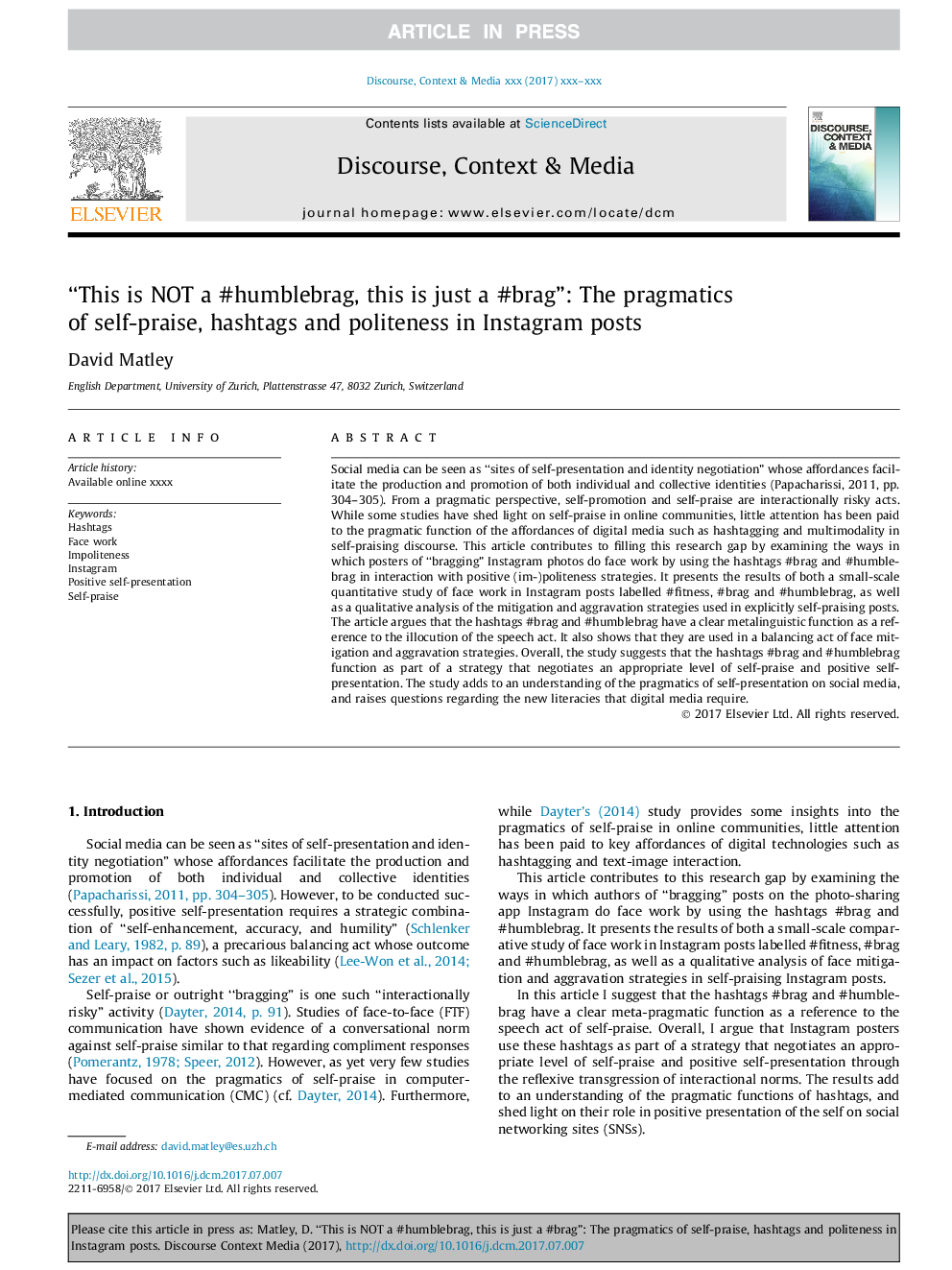| Article ID | Journal | Published Year | Pages | File Type |
|---|---|---|---|---|
| 7532589 | Discourse, Context & Media | 2018 | 9 Pages |
Abstract
Social media can be seen as “sites of self-presentation and identity negotiation” whose affordances facilitate the production and promotion of both individual and collective identities (Papacharissi, 2011, pp. 304-305). From a pragmatic perspective, self-promotion and self-praise are interactionally risky acts. While some studies have shed light on self-praise in online communities, little attention has been paid to the pragmatic function of the affordances of digital media such as hashtagging and multimodality in self-praising discourse. This article contributes to filling this research gap by examining the ways in which posters of “bragging” Instagram photos do face work by using the hashtags #brag and #humblebrag in interaction with positive (im-)politeness strategies. It presents the results of both a small-scale quantitative study of face work in Instagram posts labelled #fitness, #brag and #humblebrag, as well as a qualitative analysis of the mitigation and aggravation strategies used in explicitly self-praising posts. The article argues that the hashtags #brag and #humblebrag have a clear metalinguistic function as a reference to the illocution of the speech act. It also shows that they are used in a balancing act of face mitigation and aggravation strategies. Overall, the study suggests that the hashtags #brag and #humblebrag function as part of a strategy that negotiates an appropriate level of self-praise and positive self-presentation. The study adds to an understanding of the pragmatics of self-presentation on social media, and raises questions regarding the new literacies that digital media require.
Keywords
Related Topics
Social Sciences and Humanities
Arts and Humanities
Language and Linguistics
Authors
David Matley,
